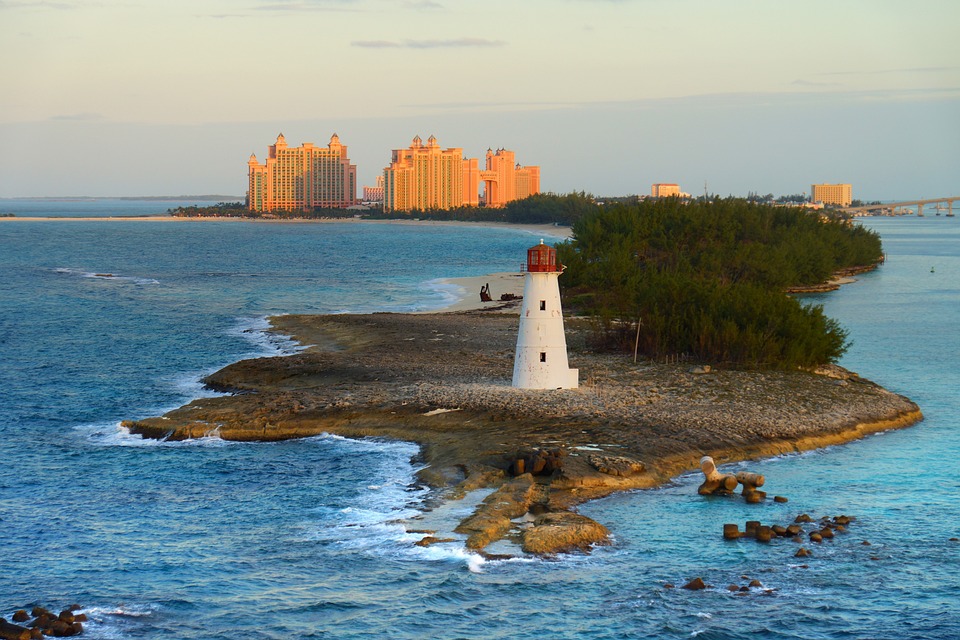Country Details
The Bahamas is an archipelago consisting of over 700 islands located in the Atlantic Ocean, southeast of Florida. Here are five important facts about the Bahamas:
1. Stunning Beaches and Clear Waters: The Bahamas is renowned for its breathtaking beaches and crystal-clear turquoise waters. The white sandy shores and vibrant coral reefs make it a paradise for beach lovers and snorkelers. The most famous beach in the Bahamas is the Pink Sands Beach on Harbour Island, known for its rosy-hued sands.
2. Vibrant Marine Life and Diving Opportunities: The Bahamas is a top destination for diving and snorkeling enthusiasts. The waters are teeming with diverse marine life, including colorful coral reefs, tropical fish, dolphins, and sea turtles. The Bahamas offers numerous dive sites, such as the Andros Barrier Reef, one of the world's largest coral reef systems.
3. Rich Cultural Heritage: The Bahamas has a rich cultural heritage influenced by its African, British, and West Indian roots. The Junkanoo festival, held on Boxing Day (December 26) and New Year's Day, is a vibrant celebration of music, dance, and elaborate costumes. The Bahamas also has a fascinating history tied to piracy, with the infamous pirate Blackbeard having connections to the region.
4. Boating and Fishing Paradise: With its abundant marine life and pristine waters, the Bahamas is a paradise for boating and fishing enthusiasts. The islands offer opportunities for sailing, yachting, and deep-sea fishing. The annual Bahamas Billfish Championship attracts anglers from around the world to compete in this renowned fishing tournament.
5. Economic Importance of Tourism and Offshore Banking: Tourism plays a vital role in the Bahamian economy. The country's beautiful beaches, luxury resorts, and vibrant culture attract millions of visitors each year. Additionally, the Bahamas has a significant offshore banking industry, offering financial services to international clients. The stability of the Bahamian economy is partially driven by the revenue generated from tourism and financial services.
Immigration Details
The Bahamas does not have a specific Golden Visa program. However, there are other pathways to immigrate to the Bahamas. Let's explore some options:
1. Establishing a Company:
- Capital requirements: To establish a company in the Bahamas, there are no specific capital requirements. The amount of capital needed will depend on the nature and scale of the business you plan to establish.
- Employing locals: As a company owner, you can employ Bahamian citizens. The employment requirements and regulations can be obtained from Bahamian authorities or legal professionals.
- Residency permit: As a company owner, you may be eligible to apply for a residency permit based on entrepreneurship or investment, subject to meeting specific criteria and requirements.
- Timeline and fees: The timeline for establishing a company and obtaining a residency permit can vary, but it generally takes several months. The fees can include company registration costs, legal fees, visa application fees, and other administrative charges.
2. Real Estate Investment:
- Investment in real estate: The Bahamas offers residency permits through real estate investments. The minimum investment threshold is currently set at $750,000.
- Residency permit: Upon making the qualifying real estate investment, you can apply for a residency permit in the Bahamas.
- Timeline and fees: The timeline for obtaining a residency permit through real estate investment can vary, but it generally takes several months. The fees include property purchase costs, legal fees, residency application fees, and other administrative expenses.
3. Work Permit:
- Finding a job: Securing a job offer from a Bahamian employer is necessary for obtaining a work permit. The employer will need to sponsor your work permit and provide necessary documentation, including an employment contract and proof of qualifications.
- Work permit: Once you have a job offer, your employer will apply for a work permit on your behalf. The type of work permit will depend on the job category and your qualifications.
- Residency permit: Depending on the duration of your employment and circumstances, you may be eligible to apply for a residency permit based on employment.
- Timeline and fees: The processing time for work permits and residency permits can vary, but it generally takes several months. The fees can include work permit application fees, legal fees, and other administrative charges.
4. Study-based Immigration:
- Obtain admission: Apply and get accepted into a recognized educational institution in the Bahamas.
- Student visa: Once accepted, you will need to apply for a student visa, which allows you to reside in the Bahamas for the duration of your studies.
- Residency permit: Depending on your circumstances, you may be able to transition from a student visa to a residency permit based on employment or other eligible categories.
- Timeline and fees: The processing time for student visas and residency permits can vary, but it generally takes several months. The fees typically include visa application fees, tuition fees, and other administrative charges.
5. Citizenship or Residency:
- Citizenship: The Bahamas does not offer a direct citizenship program based on investment. To become a citizen, you generally need to reside in the Bahamas for a specified period, meet specific criteria such as knowledge of the Bahamian culture and language, and pass citizenship tests.
- Residency permit: If you do not qualify for citizenship, you may consider applying for a permanent residency permit, which grants legal residency status in the Bahamas without citizenship rights.
- Timeline and fees: The timeline for obtaining citizenship or a residency permit can vary significantly, often taking several years. The fees depend on the specific process, including application fees, language test fees, legal fees, and other administrative costs.
It's important to note that immigration regulations and requirements in the Bahamas can change over time. Therefore, it's advisable to
consult with Bahamian authorities or seek professional advice to obtain the most accurate and up-to-date information based on your specific circumstances.



Add a review